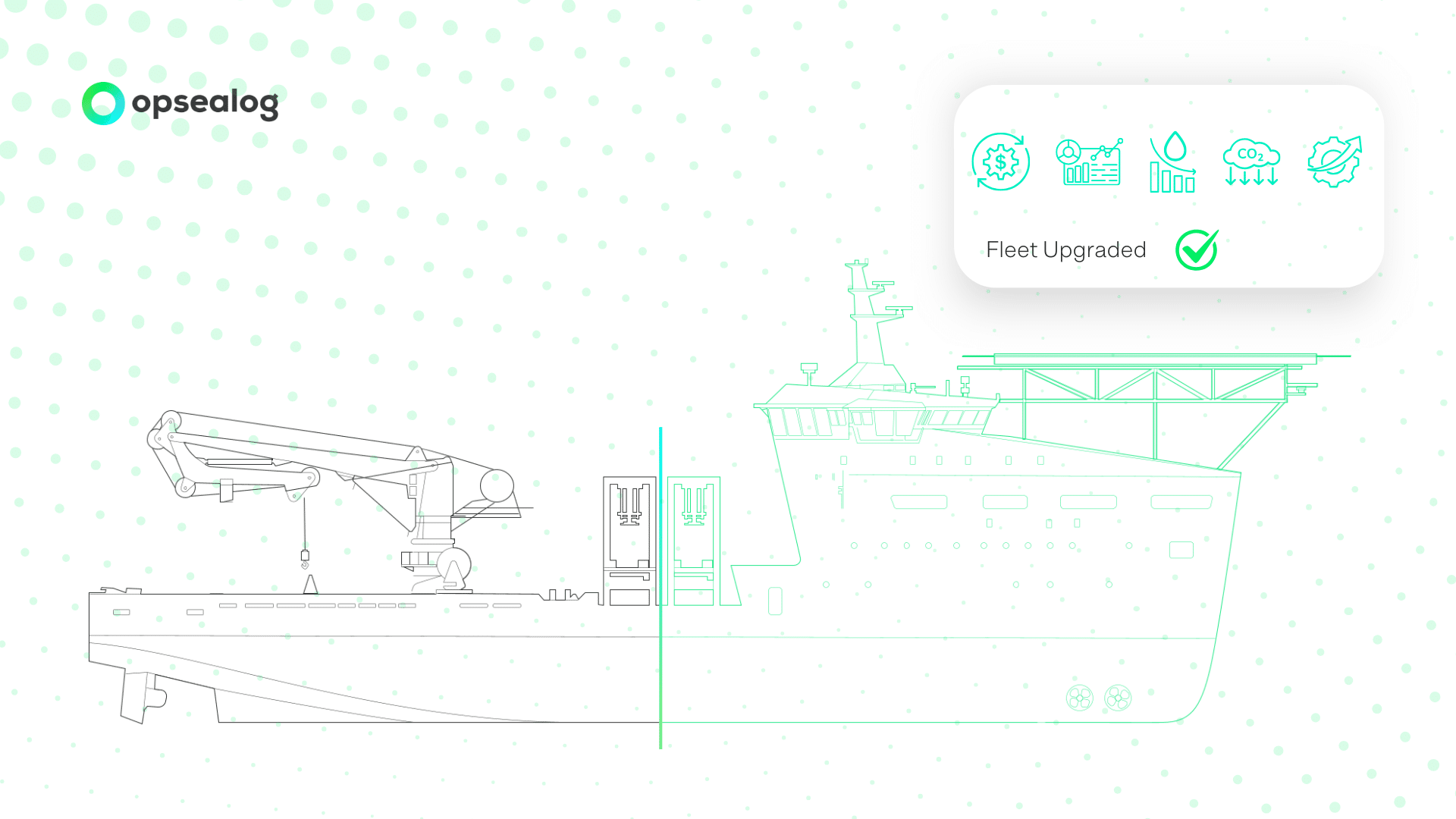As the offshore industry rebounds from the recent market downturn, vessel owners are in a pivotal moment. While the market shows signs of recovery, owners are hesitant to make large investments in new vessels, concerned that overcommitting could leave them vulnerable if demand slows down again. The last crisis has made it clear—strategic choices need to be made about fleet upgrades, operational efficiency, and environmental compliance.
The pressure to save costs while staying ahead of future regulatory demands is intensifying. Shipowners are left with no other choice than to upgrade their fleets and make the right decisions to stay ahead!
A Post-Crisis Market Calls for Strategic Investments
The offshore market is improving, creating opportunities for fleet owners to reassess their vessels. However, in a more cautious post-crisis environment, they are weighing their options more carefully. On the one hand, there is a push to invest in cleaner, more efficient technologies, but on the other, many are concerned about over-investing in a cyclical market—fearing that new vessels may become unnecessary if demand declines again.
At the same time, environmental regulations are tightening, and while they may not yet be strictly enforced in the offshore sector, it is only a matter of time before these pressures increase. Proactive fleet optimization is the key to future-proofing operations. Waiting until regulatory deadlines loom is not a viable strategy. Here lies the opportunity: using available data to strategically optimize your fleet.
Fuel Consumption: The First Metric to Follow
When it comes to fleet optimization, fuel consumption is the most important metric. An inefficient vessel is not only expensive to operate but also contributes more to emissions. Monitoring and improving fuel consumption is the first step toward reducing both costs and environmental impact. For vessels that have never been fitted with fuel monitoring systems, significant inefficiencies often go unnoticed.
For example, with Opsealog’s solutions, we often achieve up to 12% reductions in fuel consumption in vessels where fuel use had never been closely tracked. This significant improvement translates into immediate cost savings and aligns with long-term environmental goals. Optimizing fuel efficiency is the ground of any fleet upgrade decision, whether you’re retrofitting, upgrading, or planning new builds.
Benchmarking: Understanding Your Fleet’s Performance
To justify any major fleet investment, decision-makers need more than just intuition—they need data. Benchmarking your fleet’s performance allows vessel owners to measure operational efficiency against internal goals and industry standards. This helps identify which vessels are underperforming and provides a data-backed justification for upgrades.
Fleet benchmarking means analyzing operational data, such as fuel consumption, transit speed, engine utilization, maintenance schedules, and downtime. This helps you identify which vessels need attention and where to optimize. It can also reveal areas where optimization could make newbuilds unnecessary.
With Opsealog’s solutions, benchmarking is done while vessels are in operation. There’s no need to take them out of service. This approach enables continuous improvement. It helps fleet owners stay competitive and compliant in a changing market.
Learn more about how our solutions can help upgrade your fleet.
Technical Availability: Matching the Right Vessel to the Right Operation
Another critical aspect of fleet optimization is ensuring that vessels are properly matched to the right operations. Owners need to analyze their vessels’ operational profiles—idle time, deck usage, speed during transit, and technical availability. Too often, vessels are under or over-utilized because there’s no clear operational data to inform decisions.
Digital solutions help provide this clarity. With a comprehensive dashboard showing real-time and historical data, you can make better decisions about which vessels are most suited to which tasks. For example, understanding when a vessel is idling unnecessarily can lead to significant fuel savings and lower emissions. You can then decide to upgrade your fleet just by choosing the right vessel for the right operation.
Newbuilds: Designing for the Future with Data
If you know that your fleet is already optimized, and you begin to consider newbuilds, it’s crucial to use the data you’ve gathered from your existing fleet to inform these decisions. Designing a vessel without understanding your operational needs can result in costly missteps. For example, a common trend is to slow down during transit to reduce fuel consumption, which means vessel designs should integrate fewer, smaller engines that are more fuel-efficient, rather than relying on multiple powerful engines that are no longer necessary for lower speeds
Data-driven insights allow shipowners to work with shipyards to build vessels that are adapted to their specific operational requirements, ensuring the right balance between performance, fuel efficiency, and regulatory compliance.
Environmental Regulations: Prepare for What’s Coming
Environmental regulations are advancing rapidly, and while the offshore industry may not yet be the primary target, this will change. The upcoming MRV and EU ETS regulations will soon apply to offshore vessels, and owners must prepare for compliance. Whether optimizing your existing fleet or planning newbuilds, clearly understanding these regulations is essential.
The data collected from your fleet will play a critical role in meeting these regulatory demands, ensuring that both your current vessels and future additions are compliant with new environmental standards
Article: New MRV and EU ETS regulations target OSVs
Optimize Today, Prepare for Tomorrow
The offshore market is rebounding, but strategic fleet decisions cannot be based on guesswork or short-term thinking. By utilizing available data, fleet owners can optimize their current vessels, reduce operational costs, and ensure compliance with upcoming regulations. Before committing to costly newbuilds, consider the value that can be derived from your existing fleet. With data-driven insights, shipowners can confidently position their vessels for long-term success in an increasingly demanding and reactivated market. Yes, it’s time to upgrade your fleet!

